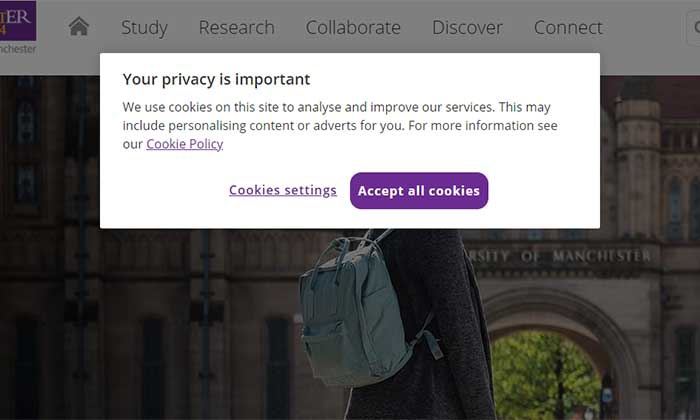New cookie consent banner for University websites
07 Jul 2021
In compliance with UK privacy law, University websites require explicit consent to install certain types of cookies on visitors’ devices

Cookies are small text files that collect data and which help us understand how visitors use our websites so we can improve their experience. We also use data from cookies to deliver targeted advertising to some of our audiences.
From 19 July, visitors to University websites from the UK or EU region will be asked for consent to cookies through a banner that will pop up on their screen. Visitors who wish to do so will be able to opt out of certain cookies, or altogether, according to their preference (some essential cookies will still be installed by default). Consent will normally last a year, but visitors will also have the option to change cookie settings at any time.
The Information Governance Office is overseeing this project and has purchased a licence for OneTrust, a market-leading platform that will allow us identify and manage cookies used by University websites. The Division of Communications, Marketing and Student Recruitment (DCMSR) is overseeing the technical implementation, working with digital teams in Faculties and other departments.
Phased implementation
The new cookie banner will initially be implemented on a number of websites managed via the T4 content management system (CMS) that use the manchester.ac.uk domain: the central University website and several Faculty websites.
Other websites, for example those hosted on the University’s WordPress platform and PS websites maintained via the T4 CMS, will get the banner added at a later date. DCMSR staff will contact owners of these other websites later this year to plan the further roll-out of the cookie banner.
Websites will require some minor code changes so they can display the cookie banner. These changes are being mostly carried out by staff in digital teams.
- If you are responsible for University websites and want to know when the cookie consent banner will be added to your site, contact john.crowe@manchester.ac.uk or milena.cimmarrusti@manchester.ac.uk.
